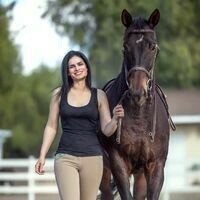Are there any good film blogs/news sites people can recommend that take submissions for them to write an article for?
Jethro Randell's Lounge Discussions
Best camera for starting out?
Hi all, hope you are well. Affordable camera technology has come a long way in the past several years. If you had to recommend a camera for a beginner, what would that be? Considering price, ease of use, quality, etc. Also, when you were starting out, what was the camera you used?

Can anyone help Jethro? I’m bumping this post up with a comment hoping some people in my network can help you out.

Hi Jethro, this is not a short answer.... haha....it really depends on your budget and location, and of course, what type of work you do..... .... i'm from argentina...we have crazy taxes for electron...
Expand comment
as you may see i left out 2 of the big brands...canon and nikon.... i'm not a nikon guy, for many years nikon mainly made cameras for photography only and in the past years they started releasing came...
Expand comment
Well it all depends on what you want to use the camera for. My partner and I were thinking about replacing my old Nikon DSLR with something newer in 2018 and it took me half a year to decide what woul...
Expand commentStuck trying to write second screenplay
Any advice for a screenwriting newbie trying to break out of writer's block?

Hi, Joel Henderson. Great to connect with you. Sometimes when I have writer's block, I write scenes that I know won't be used. Doing this helps me get ready to write my scripts....
Expand comment
Creating an outline before starting the script always helps me. Then I plow my way through the first draft. As the wise man said "Writing is rewriting".

You're welcome, Joel Henderson. What genre is your script?
Introducing Me!
Hello everyone! I'm relatively new to the Stage 32 community and thought this was a great opportunity to say hello! I'm a Writer / Director who more recently is now also the Founder and Executive Director of the Santa Clarita International Film Festival! (https://www.sciff.org/). Looking forward t...
Expand post
Welcome Lisa DeSouza and keep in touch here. We on Facet.tv are looking for great independent series and features - send your favorites my way!

Hi Lisa DeSouza - I am new myself :so much to take in as regards to information and learning. Great to always learn about a new Film festival!

Hi Lisa. Just checked out your festival's website, looks really good. I know they're not easy to run, and want to wish you the best with it.

Hi Lisa DeSouza and a pleasure to e- meet and i am definitely connecting.
Gear Acquisition Syndrome and the "Nice-To-Have" List
Been thinking about this a lot recently, but only recently come across the name of it. Gear Acquisition Syndrome. Often see this on blogs and forums, and I'm guilty of it myself at times too. Where people let their lack of equipment stop them from shooting something.
If only they had this one piece...
Expand post
Jethro Randell plenty, I have right now: 4 gimbals which I may just needed 2, a slider, which I never used (only once) 2 slypod (motorized slider/monopod, which I actually just needed 1), 10 different...
Expand commentDoing Day-For-Night
I'm wanting to do a series of scenes set at night in the woods, with lighting motivated by the moon yet want to shoot during the day and grade it in post. Are there any tips on how to make it look better during filming, or anything to avoid doing?

During filming you're at the mercy of the sun. You don't want a partly cloudy day with clouds moving across the sun. So go with the sun, or go with overcast (great big diffuser). Harsh sun means actor...
Expand comment
Is there a reason you're trying to shoot during the day instead of at night? I'm assuming there is a wide shot involved?
Also, I found this recent video on DFN filming: https://www.youtube.com/watch?v=...
Expand comment
Yeah, quite a few wide shots. Want to explore that option as it would be better for budget and scheduling to do it in the day time. If I can incorporate it into the style and give it a good look, think it'll be a win-win. Also thanks for the link, will look into filters too

Day for night is workable, but there are a number of pitfalls that end up being problematic. With the software we have available it is easy to replace the sky (try to avoid shooting the sky if you can...
Expand comment







1 person likes this
The only one I know of is No Film School
2 people like this
The blog right here on Stage 32 is all member curated! You can email your pitches to me at taylor@stage32.com https://www.stage32.com/blog...
Expand commentThe blog right here on Stage 32 is all member curated! You can email your pitches to me at taylor@stage32.com https://www.stage32.com/blog
reach out to websites that do movie reviews or article that are similar to yours and reach out to them directly, you may be surprised how easy to do so, if they don't respond the first time, wait 3-4 days and send them a gentle/professional reminder.